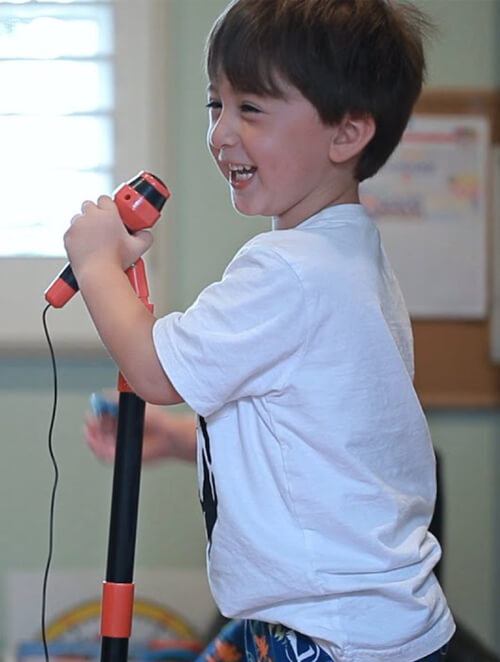Constipation in Children – Tips and Prevention
 51210
51210

super easy
Constipation means erratic bowel movements, generally lesser than three in a week. In most cases, constipation in children is a short phase and usually resolves with treatment. However, to treat constipation, one must learn to recognize its symptoms.
As an adult, constipation can be quite difficult and uncomfortable to deal with; thus, it is even more challenging for babies, toddlers, or young children to deal with it. There is no way they can let us know about their discomfort, so it may take some time for us as parents to realize that our child may be constipated.
Symptoms of Constipation in Children and Babies
In babies and children, constipation signs or symptoms are not very different from those in adults. The only difference is that babies and some children cannot communicate their discomfort; hence, you need to understand their bowel movements and identify irregularity as a parent. Following are some common signs and symptoms of constipation in children of different age groups:
Babies:
Some infants tend to get constipated after solid foods get introduced to their diet. Signs or symptoms of constipation in an infant or baby include:
difficulty in passing stools
pellet-like bowel movements
dry and hard stools
crying during bowel movements
irregular bowel movements
The frequency of passing stool varies in infants, so you must use your infant’s routine as a baseline. If your baby generally has one bowel movement each day and it has been a few days since he or she has passed stool, then this could be a symptom of constipation.
Toddlers:
Toddlers may have constipation symptoms similar to those of a baby. However, you may observe other signs as well, which include:
stomach seeming stiff to touch
unusually big stools
abdominal inflammation
flatulence
traces of blood in the genital area (due to minor tears from straining around the anus area)
Older Kids: Along with the signs and symptoms already outlined for babies and toddlers, older kids may experience stomach pain and notice traces of liquid in their underwear from the backed-up stool around the rectum. Your older child may experience pain while passing stools and avoid going to the bathroom due to this reason.
Causes of Constipation
Constipation usually happens when stool or waste moves very slowly through the digestive tract, which causes the stool to become dry and hard. Some factors that cause constipation in babies and children are:
Withholding:
Your child may withhold passing stools due to various reasons, such as fear of using toilets or not wanting to take a break from play.
Toilet training issues: Ensure that you start toilet training only once your child is ready; if you begin toilet training too soon, your child may rebel and hold in stool.
Changes in diet:
Constipation can also develop due to dietary changes.
Changes in routine. Any changes in your child’s routine, such as hot weather, travel, or stress, can also affect the bowel movements.
Medications:
Certain medications can contribute to constipation.
Cow’s milk allergy:
Some kids are allergic to cow’s milk, which may lead to constipation, or consuming too many dairy products may also lead to constipation.
Family history: Children with a family history of constipation also tend to experience the same; this may be due to genetic factors.
Medical conditions: sometimes, constipation in children is due to an anatomic malformation, a digestive or metabolic system problem, or another underlying condition; a doctor can diagnose this.
Baby and Toddler Constipation Home Remedies
Though constipation is painful for toddlers and infants, it is seldom a sign of an underlying health condition. There are several home remedies one can practice to help and relieve constipation, such as:
Drinking more water and fruit juices:
Constipation usually sets in when stools become hard and dry. Increasing water intake can help with the softening of stools and thereby making them easier to pass. Offer at least two to three ounces of water to your baby at a time to help with constipation; however, note that water does not replace the routine of feedings. Fruit juices can also relieve constipation as some of these juices comprise the sweetener sorbitol, which acts as a laxative. One can offer around two to four ounces of fruit juice to babies who are at least six months old. Some fruit juices known to help with constipation are pure prune juice, apple juice, pear juice, and regular feedings.
Adding more high fiber to foods:
If a baby has been eating solid food, you can offer high fiber foods such as apples, pears, peas, prunes, and bananas. Also, note that feeding too much rice cereal to a baby can also trigger constipation; thus, it may reduce the amount of rice cereal you are feeding your baby.
One can also consider inserting an infant glycerine suppository into the baby’s anus. These suppositories are safe for infants/toddlers and are available at most pharmaceuticals for instant relief.
Constipation Remedies for Older Kids
Following are a few essential tips to stimulate bowel movements in older kids.
Increase their water intake: Insufficient intake of fluids is the main reason for constipation in older children. Ensure that your children drink at least thirty-two ounces of water each day to prevent constipation.
Glycerine suppositories: Just like for infants, glycerine suppositories can help soften stools in older children too.
Increase fiber intake: A low fiber diet is another factor that contributes to constipation in children; thus, do ensure a fiber-rich diet for children. It includes more vegetables, fruits, and whole grains. One can also administer fiber supplements to children. To understand how much fiber your child needs per day, take their current age and add five to it; so, if your child is six years old, they will need around eleven grams of fiber each day.
Increase physical activity: An inactive lifestyle may also cause constipation; encourage your children to be active physically to help promote bowel movements and intestinal contraction.
Note: Enemas and laxatives provide fast constipation relief in adults; however, do not give these to your toddler or infant. Only a doctor should recommend such medications.
Conclusion
Constipation in children and babies is often a short phase and not connected to some underlying health condition; it can, however, be a sign of something else. Consult your pediatrician if your child’s constipation becomes chronic and does not resolve itself with home remedies.
Follow us-
Instagram/ Facebook/ Youtube/ Pinterest





Leave a Reply